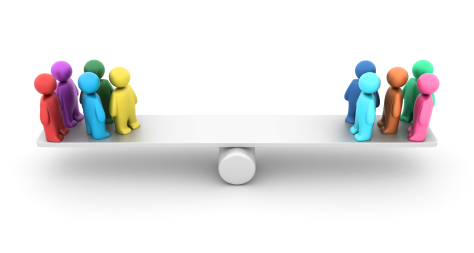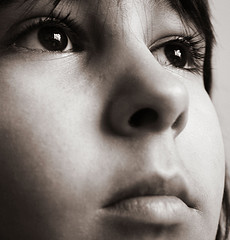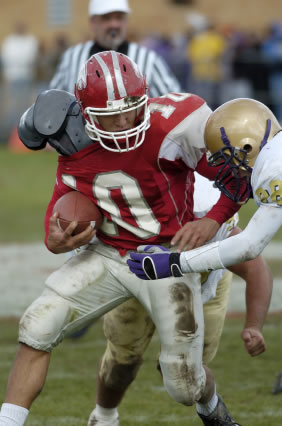Research shows that nearly everyone cheats a little if given the opportunity. Dan Ariely, author of the new book, “The (Honest) Truth About Dishonesty,” explains why.
ᔥWall Street Journal Read the original article
ᔥWall Street Journal Read the original article

Image: iStockphoto
The research finds a team or group with all high-performers will not outperform teams or groups with an established hierarchy. Teams in which everyone has high power are likely to experience elevated levels of conflict, reduced role differentiations, less coordination and integration, and poorer productivity than teams with a broader distribution of power and status.
The new study, published online in Psychological Science, a journal of the Association for Psychological Science, was conducted by Adam Galinsky of the Kellogg School of Management at Northwestern University; Richard Ronay of Columbia University; Katharine Greenaway of University of Queensland; and Eric M. Anicich of Columbia University.
The study confirmed the researchers’ theory that “there will be greater conflict with all high-power individuals as each member jostles to take control,” thus undermining group performance.
“We found that a clear hierarchy, division of labor and patterns of deference reduce conflict, facilitate coordination and ultimately improve group productivity,” said Galinsky, Morris and Alice Kaplan Professor of Ethics and Decision in Management at the Kellogg School. “On the other hand, when there are too many leaders or too few followers, group performance suffers.”
The research illustrates how the composition of a group ? from sports teams to corporate work teams to political groups ? affects the way the group functions. When a group requires lots of coordination, such as when performing tasks that call for interdependence among the group members, hierarchy wins out. This is the first study that manipulated overall levels of hierarchal differences in groups and measured the effects on group productivity.
“Despite the overt appeal of egalitarian social structures, there remains an enduring implicit preference for hierarchy,” Ronay said. The study suggests that this preference has its roots in “the utilitarian value of distributed power.”
The authors found similar findings among animals, as well. Previous studies discovered egg production among chickens declined when all the high-producers were placed together. Citing this example, the authors note that “pecking orders, it seems, are not just for the birds.”
In the first experiment, 138 undergraduate students were randomly assigned one of three experimental conditions (high-power, low-power, baseline) and organized into same-sex teams of three high-powered participants, three low-power participants or teams with one high-power, one low-power and one baseline. [continue reading…]

Image: Norma Desmond
The antioxidant, called N-Acetylcysteine, or NAC, lowered irritability in children with autism as well as reducing the children’s repetitive behaviors. The researchers emphasized that the findings must be confirmed in a larger trial before NAC can be recommended for children with autism.
Irritability affects 60 to 70 percent of children with autism. “We’re not talking about mild things: This is throwing, kicking, hitting, the child needing to be restrained,” said Antonio Hardan, MD, the primary author of the new study. “It can affect learning, vocational activities and the child’s ability to participate in autism therapies.”
The study appears in the June 1 issue of Biological Psychiatry. Hardan is an associate professor of psychiatry and behavioral sciences at Stanford and director of the Autism and Developmental Disabilities Clinic at Packard Children’s. Stanford is filing a patent for the use of NAC in autism, and one of the study authors has a financial stake in a company that makes and sells the NAC used in the trial. [continue reading…]

Image: iStockphoto
In findings published online in the inaugural issue of Applied Neuropsychology: Child, researchers found that young athletes neglect the more subtle symptoms — neuropsychiatric and sleep issues — and base their perceptions of their recovery primarily on physical (somatic) symptoms such as headache and nausea.
Results indicate that when athletes gauge their own readiness to return-to-play, their physical symptoms account for 56 percent of their self-assessment, whereas their performance on objective neurocognitive testing only accounts for 28 percent. While the statistical analyses revealed that they judged their recovery on somatic and cognitive symptoms almost twice as strongly as neurocognitive testing, the sleep and neuropsychiatric symptoms ranked ahead of their performance on the objective test data by only a few percentage points.
“Our findings suggest that young athletes may not perceive their cognitive deficits as well as they perceive their somatic symptoms,” said Anthony Kontos, Ph.D., assistant research director with the UPMC Center for Sports Medicine Concussion Program. “Therefore, it is important to assess their cognitive deficits using neurocognitive concussion tests and a comprehensive clinical evaluation.” [continue reading…]